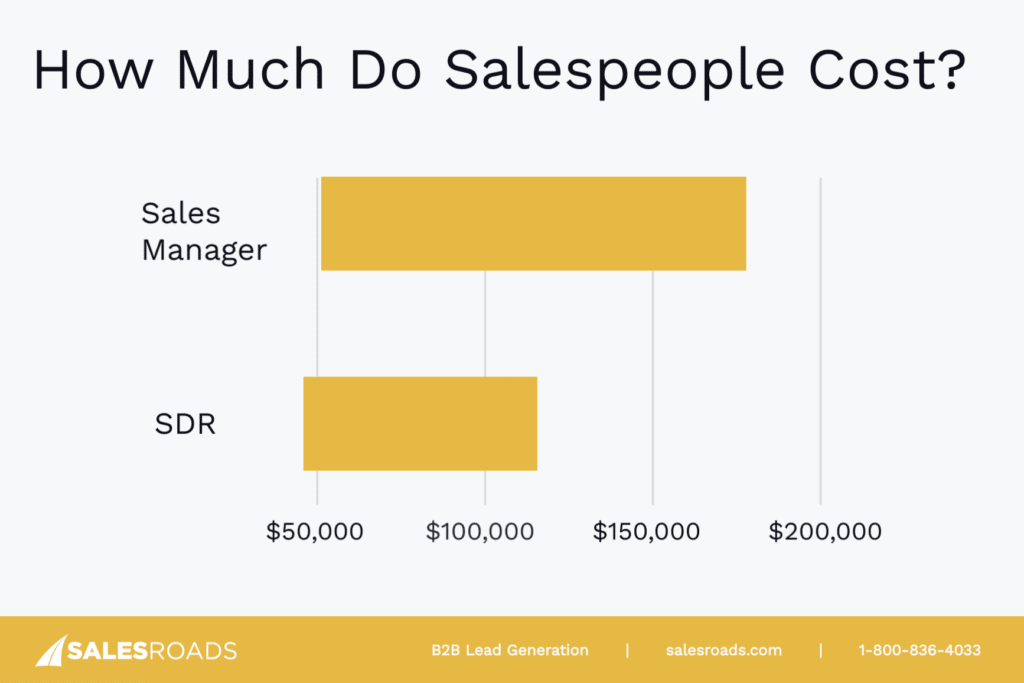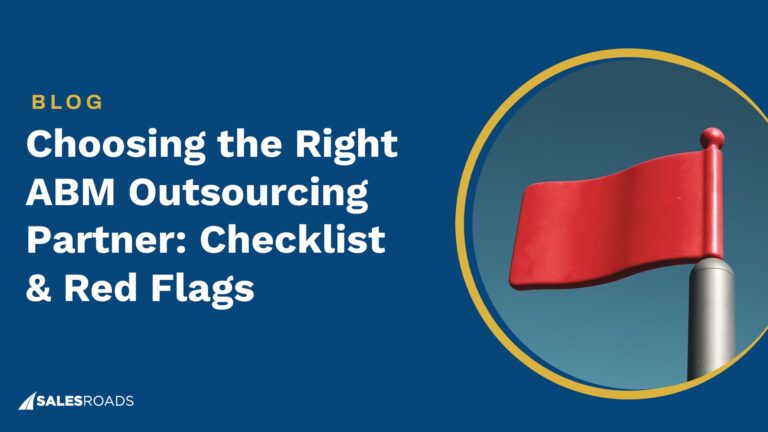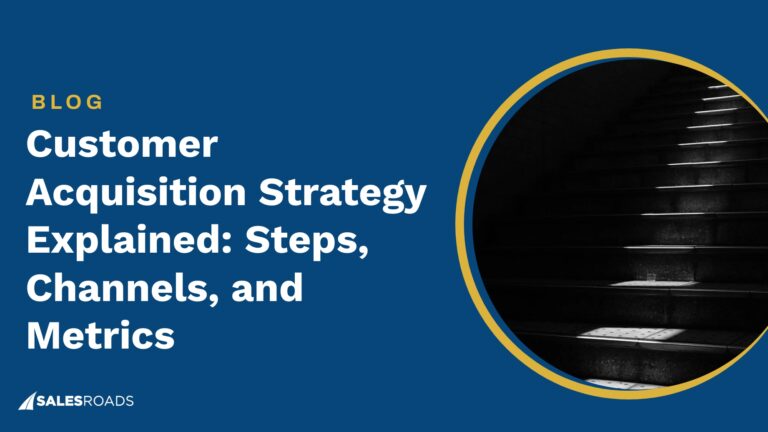Sales calls are crucial for companies that sell high-value or unique products to achieve revenue goals. Outsourcing this function is a faster and cost-effective approach than building an in-house team.
What is Cold Calling?
Cold calling is a sales technique that involves phoning prospects without previous interaction with your brand. Its primary purpose is to identify prospects that fit the company’s ideal customer profile to fill the pipeline with qualified leads and increase conversion rates.
This is a common appointment setting tactic used by sales development representatives (SDRs) to qualify leads. Here’s a side-by-side comparison of cold calling and warm calling:
| Point of Comparison | Cold Calling | Warm Calling |
| Call purpose | Introduction | Highlight product value & benefits |
| Call type | Unexpected | Expected |
| Sales funnel stage | Awareness | Interest and evaluation |
| Risk of rejection | High | Moderate |
Cold calling can help create an efficient sales process, but implementing this tactic might be tricky. Unexpected calls can generate a wide range of responses, such as:
- Call acceptance
- Termination
- Hang-ups
Companies need trained and experienced sales reps to get the best possible outcomes from sales calls. High-performing SDRs are great communicators who can quickly and effectively connect with potential clients.
Pros and Cons of Outsourcing Sales Calls
Outsourcing sales calls entails contracting a third-party service provider to take on the task.
Here are the primary benefits of outsourcing sales calls for small and big businesses.
- Cost savings: Building an in-house team can easily cost six figures, as SDRs’ salaries go from $45,910 to $51,720, and managers can earn between $67,611 and $124,591. By outsourcing sales calls, you don’t have to pay wages, training costs, equipment, and other associated expenses of establishing an in-house team.

- Access to expert workforce: Outsourced sales agencies have teams of expert SDRs, so you don’t have to endure long and costly hiring processes in your company.
- Flexibility: If your sales call strategy is not working, you can cancel the contract and change your approach.
- Quick rollout: On average, it takes 3.1 months to onboard an SDR and 12 months to develop them into a top performer.1 When you outsource, your program can roll out in just a few weeks with fully trained SDRs.
Sales call outsourcing can also have several pitfalls, such as:
- Quality issues: Most outsourced sales calls are remote, which means you are not present in the SDR’s daily operations. This can cause quality issues that you can’t fix right away.
- Data concerns: Outsourcing your sales calls entails handing over customer and business information to a third-party provider. Some agencies do not take data protection seriously, which can damage your reputation.
Outsourcing sales calls helps small businesses compete with larger firms despite limited resources. By making more phone appointments, they increase conversion opportunities and boost revenue.
For big businesses, outsourcing sales calls is beneficial because it enables exploring new or underserved market segments with minimal risks.
Factors to Consider When Choosing an Outsourced Sales Company
Working with a reliable outsourcing company specialized in sales calls reduces potential complications. You can use these criteria to decide which sdr outsourcing service provider is best for your business:
Workforce Qualification
An outsourcing company’s ability to deliver positive results depends heavily on its personnel, so paying attention to its credentials is essential.
When looking at the qualification of an outsourcing company’s team, ask about their:
- Education: SDRs typically have a bachelor’s degree in business or related fields. A college diploma is not a fixed requirement, as long as the candidate has the right skills and experience for the job.
- Training: The training SDRs undergo will help determine their skill levels. An outsourcing company that provides consistent training reflects its commitment to great service.
- Certifications: To have tangible proof of the sales rep’s competency, ensure their certifications are from reputable organizations.
Pro tip:
Check third-party review platforms to see what previous clients say about the agency. Look at the positive and negative reviews to get a more objective view of what it would be like working with them. If they have plenty of negative reviews, it’s best to look for another option.
You can also reach out to their previous clients and ask about their experience working with the outsourcing agency.
Call Capacity
It’s essential to know how many calls an outsourced team can make daily to see whether they can achieve your goals.
SDRs make an average of 60 calls per day, or around 7 to 8 calls per hour.2 Some SDRs can make up to 100 calls daily, but doing so can affect the quality of their work.
If you are looking to increase your revenue, prioritize making more sales calls to boost your chances of closing deals.
Pro Tip:
Some outsourced agencies allow their reps to work on multiple projects simultaneously. If your primary reason for outsourcing is to boost revenue, look for a service provider that offers a dedicated team. This can be a bit more expensive, but it will enable better and faster results.
Industry Knowledge and Experience
A good sales call requires sales reps to know the company’s offerings well, which is only possible through experience or intensive training. Sales reps must be able to provide the best answers and sound persuasive without being too pushy.
Most outsourcing agencies specialized in sales calls highlight success stories on their website, making it easy to check if they have handled business similar to yours. If this information is not readily available on their web pages, you can ask about it on your first consultation.
Pro tip:
Ask how they assign a specialist to a client to see whether you’ll get the best sales rep for the job.
Cost
Outsourced sales companies can have different pricing models, such as:
- Commission-based: Some companies take a percentage of every closed deal resulting from their rep’s sales calls.
- Hourly rates: This is a common pricing model when outsourcing sales calls to independent freelancers. This pricing model is similar to how in-house employees are compensated, with the advantage that you don’t have to pay expenses such as benefits, training, and equipment cost.
- Retainer basis: Custom solutions are usually charged with this pricing model. The cost can vary depending on factors such as task complexity, timeframe, and objectives.
Outsourced sales calls’ prices vary depending on the industry and goals. To know whether you are getting a fair price, request quotes from multiple service providers. Doing this will also help you streamline the companies that fit your budget.
Pro tip:
It can be tempting to go for the most affordable outsourced sales call provider, but underinvesting in this process can severely impact your outcomes. The goal is to look for an agency that will provide you with the best value for your money, not the cheapest rates.
Client Onboarding Process
Sales calls must embody the company’s tone and message, so choosing a service provider that allocates time to familiarize your brand and sales playbook is crucial. This will be evident in their client onboarding process.
Outsourcing is essentially faster than building an in-house team, but make sure the provider’s timeline is realistic. If it’s too fast, your campaign might have plenty of mishaps along the way, which can harm your company.
Pro tip:
It’s a good sign if part of the agency onboarding process is an audit of your existing sales playbook. This shows they are committed to understanding your brand and improving your sales process.
Bottom Line
Outsourcing sales calls allows companies to generate leads without investing much time and effort. This alternative can be a great move for your business if you’re looking to rely on a specialized workforce while saving time and money.










